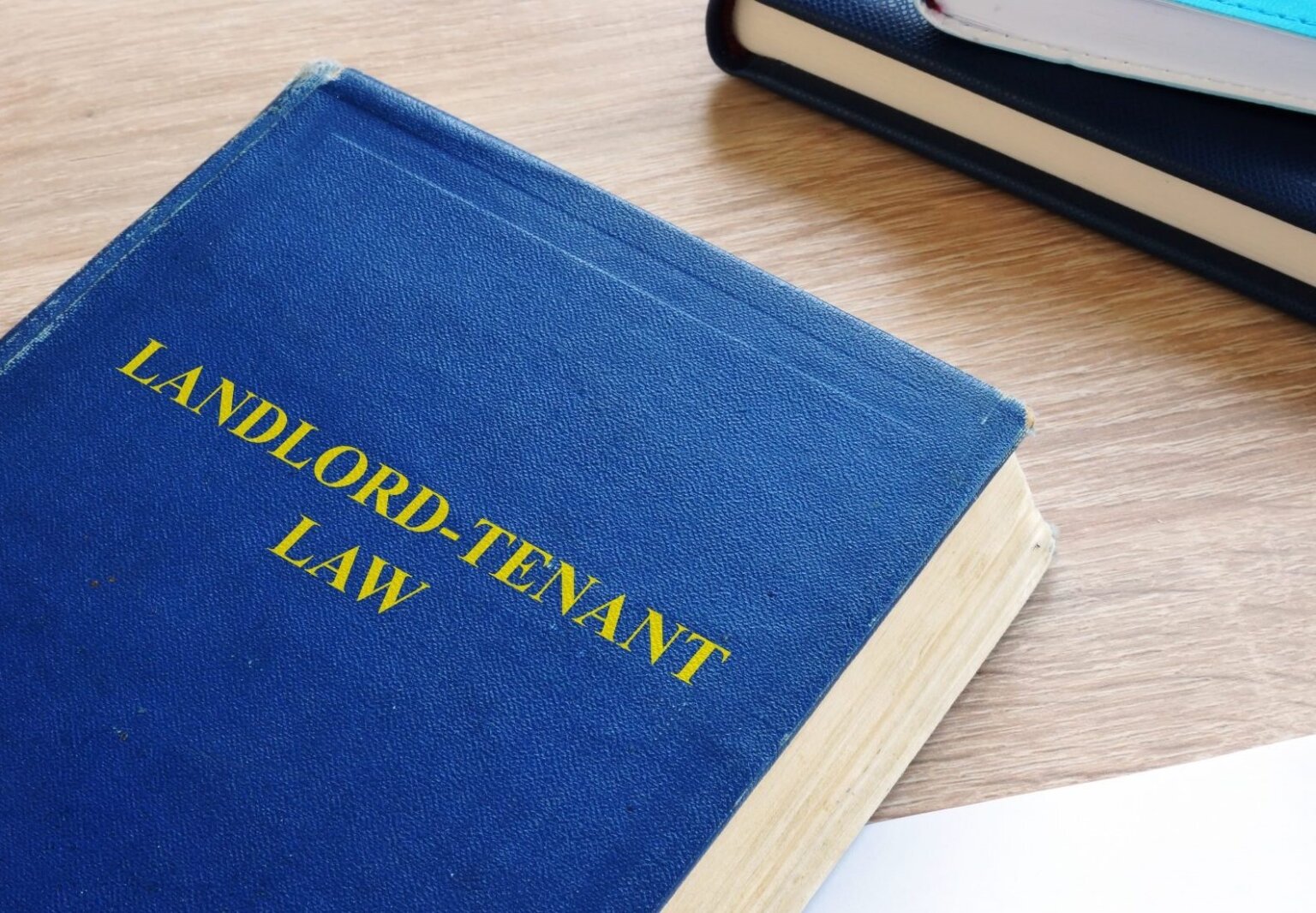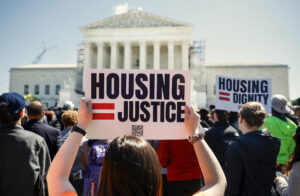6:02
News Story
Opposed by landlord groups, tenant protections bill stalls out in Assembly
Democratic lawmaker won’t give the legislation a hearing before deadline
When asked if the legislation bolstering tenant protections was dead, bill sponsor state Sen. Julia Ratti said “it looks that way.”
Democratic Assemblywoman Sandra Jauregui said Wednesday that Senate Bill 218, which would have mandated a three-day grace period before charging late fees on rent, puts stipulations on when landlords can collect rental application fees and limits hidden fees associated with rentals, would not be getting a hearing.
After passing on a party line vote in the Senate April 20, the bill failed to advance in the Assembly’s Commerce and Labor committee, which Jauregui chairs. Jauregui said she “has spoken with the bill sponsor” about the legislation and working with her, but didn’t elaborate on details.
But she reiterated that “we will not be hearing it.”
“I’ll just say I still think it’s a good bill and I stand by it,” Ratti said.
SB 218’s demise joins a long list of affordable housing and tenant protection legislation that has died during the session — organizers also noted that Democrats caved to interest groups in previous sessions — without getting a hearing or being drastically watered down behind closed doors.
“It’s disappointing to hear,” said Ben Challinor, the policy director with Faith in Action Nevada.
“This is the bill of the legislative session that could provide long term support to a large group of tenants out there. This is the bill that will help the most Nevadans out there.”
Christine Saunders, the policy director for the Progressive Leadership Alliance of Nevada, said there have been rumblings that lawmakers think there are “too many housing bills this session.” PLAN is part of the Nevada Housing Justice Alliance, composed of civil rights groups and social service providers advocating for greater tenant protections.
“That statement doesn’t make much sense to me since a number of legislators have introduced bills because they saw a problem their constituents were facing,” she said. “We know we have been in a housing crisis that has only been exacerbated.”
During its first hearing, Ratti said SB 218 was a response to landlords actions following the 2019 session.
Lawmakers passed protections in 2019 that slightly extend the eviction timeframe and cap late fees for unpaid rent to 5 percent. Following the bill’s passage, some property owners in Las Vegas unilaterally changed rental conditions around late fees.
Amended language had toned down SB 218 and softened some of the language around hidden fees as long as they are “reasonable” and listed on the first page of the lease.
Another provision of the bill ensured landlords could only charge an application fee to one applicant at a time per unit.
“I don’t think these were huge asks,” Saunders said. “These were very reasonable things.”
The legislation still faced backlash from landlord groups who warned increased protections would cause “havoc and chaos.”
“There has been a lot of pushback from Nevada Realtors, landlords and apartment groups saying (SB 218) is an overreach but this bill is only a start,” Challinor said. “We are trying to fix what the bad actors were trying to do. We’re just trying to give a little more of a runway for tenants by not letting them get taken advantage of by bad actors.”
It’s not first time housing justice and civil rights groups have been dismayed after amendments have watered down or altered the impact of the bill.
State Sen. Dina Neal introduced Senate Bill 254 to prevent formerly incarcerated individuals from being discriminated against when searching for housing. The legislation also empowered the Nevada Equal Rights Commission to investigate claims of housing discrimination.
In a heated hearing May 6, Neal pushed back against Republican colleagues who argued the bill stripped property rights.
She said there are individuals who “have been denied access to housing who should be treated equally” and that she wanted to ensure the bill established formerly incarcerated individuals “have equal rights to housing.”
But advocates who initially supported the bill question its current form, which excludes certain felonies, such as arson, and exempts single-family homes, manufactured homes or “dwellings smaller than four units.”
“With the carve out that is provided to realtors in the amendment, we believe this bill will do harm to the criminal justice reform this body is committed to pursue,” Nick Shepack, a policy fellow with the ACLU of Nevada, said during the hearing. “By exempting single family homes from their fair change provisions, the Nevada legislature would be declaring Nevadans with criminal records who have served their time are too dangerous to be considered for the suburbs. This distinction is dangerous.”
Assembly Speaker Jason Frierson’s tenant legislation, Assembly Bill 308, which was praised by Nevada Realtors and the Nevada Apartment Association and would mandate grace periods on late rent similar to SB 218, passed out of committee Wednesday.
Housing organizers noted the bill provides weaker protections than those in SB 218.
Our stories may be republished online or in print under Creative Commons license CC BY-NC-ND 4.0. We ask that you edit only for style or to shorten, provide proper attribution and link to our website. AP and Getty images may not be republished. Please see our republishing guidelines for use of any other photos and graphics.




